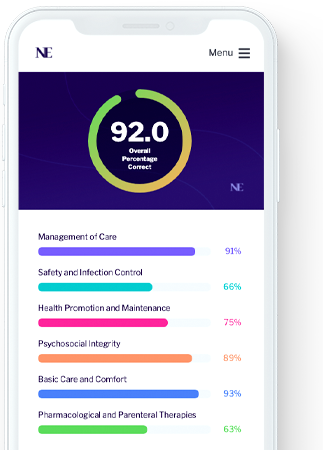Historically Black Colleges and Universities (HBCUs)
Many HBCUs, or Historically Black Colleges and Universities, offer entry-level and advanced nursing degrees. HBCU nursing programs are among the best in the nation, and students attending them can enjoy many benefits inside and outside the classroom. HBCUs were founded with the mission to expand educational access and foster post-graduate careers for people who identify as Black and other disadvantaged minority groups. Currently, the U.S. Department of Education identifies over 100 public and private universities and colleges as HBCUs, making up about three percent of the total number of higher learning institutions.
HBCUs exist to provide supportive environments in which Black students can thrive. This has proven especially vital for racial and cultural diversity in the science, technology, engineering, and mathematics (STEM) fields and in the medical and allied health sciences. Although Black students can now choose from thousands of higher-learning institutions to obtain their degrees, HBCUs offer unique advantages for encouraging academic growth and sustained career success alongside peers from a similar shared background and culture.
Nursing Programs at an HBCU
HBCU nursing programs provide the educational fundamentals for new nurses and offer advanced degrees for experienced nurses. The curriculum at HBCUs is shaped through the lens of Black American experiences. Keep in mind, however, that HBCU nursing programs have the same curriculum as programs offered at non-HBCU institutions. Like all nursing institutions, HBCUs are subject to quality standards in order to be accredited by the National League for Nursing Accreditation Commission (NLNAC) or the Commission on Collegiate Nursing Education (CCNE).
Why Should I Choose an HBCU Nursing Program?
An HBCU nursing school will include an intentional focus on outreach toward Black and minority nurses. Since the founding members, instructors, and support staff of the program are often Black professionals with their own distinguished and successful nursing careers, students enrolled in the program will have a strong, solid network of academic and social support. Additionally, many of these schools have smaller class sizes, which effectively result in increased engagement, rapport, and relationship-building with professors and classmates. This environment of inclusiveness and accountability encourages students to succeed.
Statistically, African-American, Black, and other minority students are more comfortable and achieve greater academic success in educational climates that provide a sense of safety and support. Results of a Gallup-Purdue poll reported that African-American HBCU graduates are far more likely to have felt a sense of support, purpose, and identity while enrolled, and to feel successful post-graduation, than their counterparts who enrolled in and earned degrees from non-HBCUs.
Consider also the important role that HBCU nursing schools play in helping Black nurses earn advanced master’s and doctoral degrees to obtain higher positions within the healthcare industry. Even today, Black and other minority applicants still frequently encounter racial discrimination in predominantly White graduate schools. This is an unfortunate reality that advanced degree programs at HBCU nursing schools strive to eliminate.
Do HBCU Nursing Programs Only Accept Black Applicants?
Although HBCU nursing programs were initially founded with the intent to support and empower African-American students through academic excellence, they have become increasingly more inclusive in their application acceptance processes, especially regarding other minorities in the community. Native American and Hispanic students often face the same educational, financial, and social challenges as their Black peers and seek a similar school climate for support. HBCU nursing schools are also open to international students; the smaller environment is less impersonal and can have a more inviting atmosphere. Today, HBCUs are proud to welcome international refugees, immigrants, and others who may be prevented from thriving in traditional, predominantly White academic programs. Aspiring nurses who come from a low-income or first-generation family background can also find support through the HBCU educational environment.
Can I Earn an Accelerated Degree at an HBCU Nursing School?
An increasing number of HBCU nursing schools nationwide now offer accelerated nursing program options similar to those provided by traditional universities and colleges. As in a non-HBCU institution, students enrolling in these schools may apply their currently-earned degree towards completion of the accelerated nursing program curriculum. These options may be offered either in person or online, depending on the school, degree level, and the applicant’s preferences.
The advantages of enrolling in an HBCU accelerated nursing program are the same as in a non-HBCU institution. Many students enrolled in these programs have the flexibility and time-management skills to work while concurrently studying for their degree, despite the pace of the program.
Accelerated programs are designed for applicants who have a degree in another field or an entry-level certificate or degree in nursing. For example, qualified applicants can complete an accelerated Bachelor of Science in Nursing (BSN) in 18 months. A traditional BSN takes four years to complete. Click here for more information about bridge, direct-entry, and accelerated programs for other nursing degrees.
The History and Impact of HBCUs in the United States
Historically Black Colleges and Universities (HBCUs) are culturally significant American institutions that were created before the Civil Rights Act of 1964. Prior to the Civil Rights Act, almost all American colleges and universities served predominantly White students while limiting or outright disqualifying enrollment by African-American or Black students. From the end of slavery in 1865 and up to 1964, institutions of higher learning in the American South barred Black students from enrolling. Schools in the Northern United States and elsewhere limited Black enrollment by using quotas.
For over a century, HBCUs have played essential roles in Black communities across the country, evident through the lives, actions, investments, and endeavors of their student and post-graduate populations. HBCUs have a significant impact on the workforce, culture, and economy of the United States. Their contributions include:
- Providing necessary support to first-generation, low-income college students from various minority groups by helping them achieve academic goals beyond high school
- Helping to minimize the underemployment discrepancy between African-Americans and the remaining US population
- Increasing the representation of Black STEM professionals in the national workforce
- Narrowing the racial wealth divide in the US
- Injecting local and regional business economies with the millions of dollars invested by students and graduates
- Building interconnected professional organizations across cultural, business, social, and economic spheres of influence throughout the country
For more considerations on finding the best nursing program for you, please read How to Choose the Right Nursing Program.




